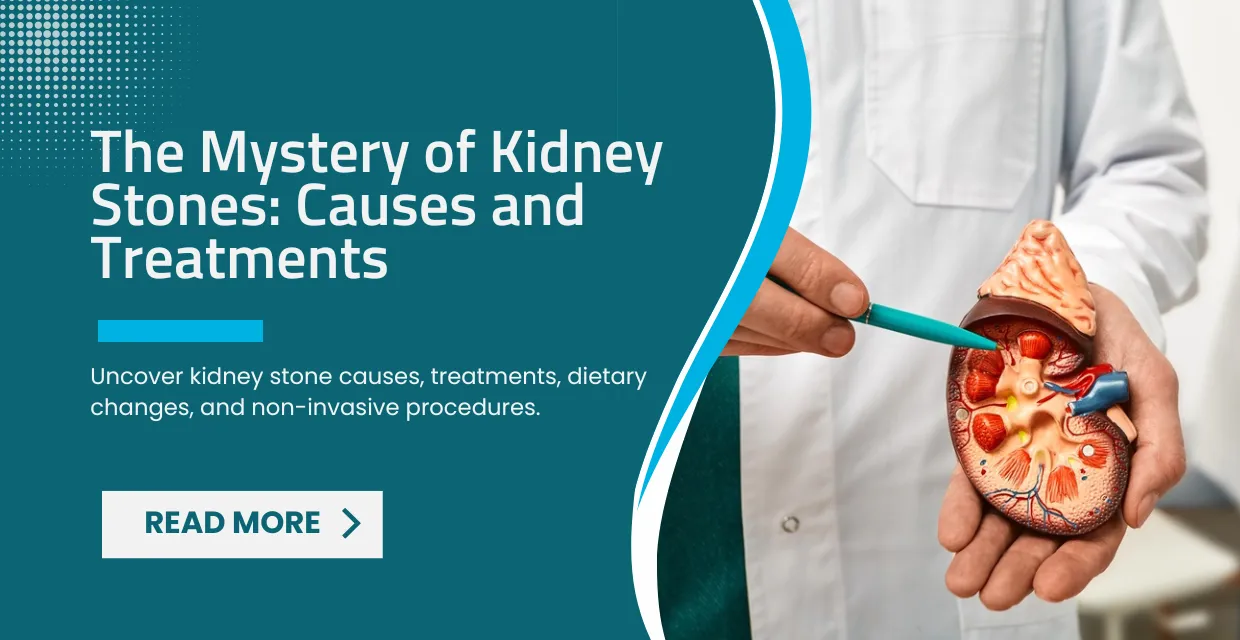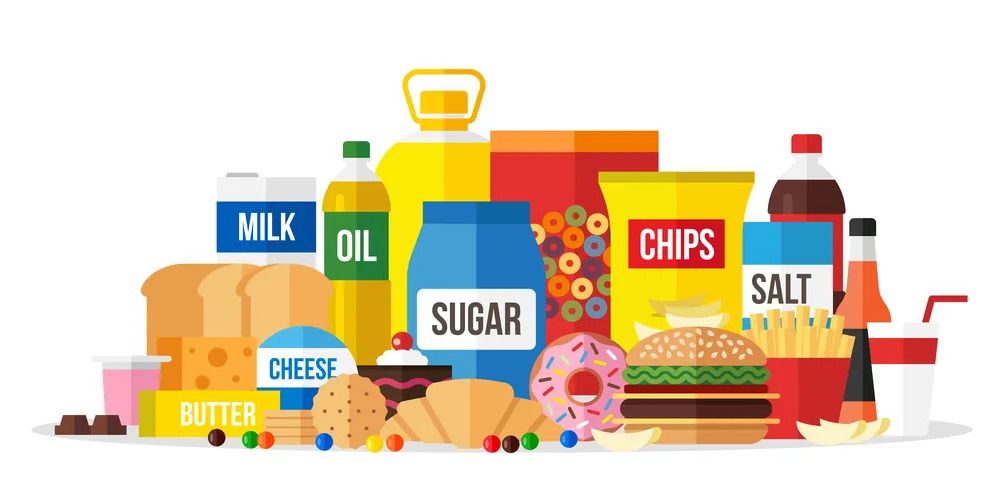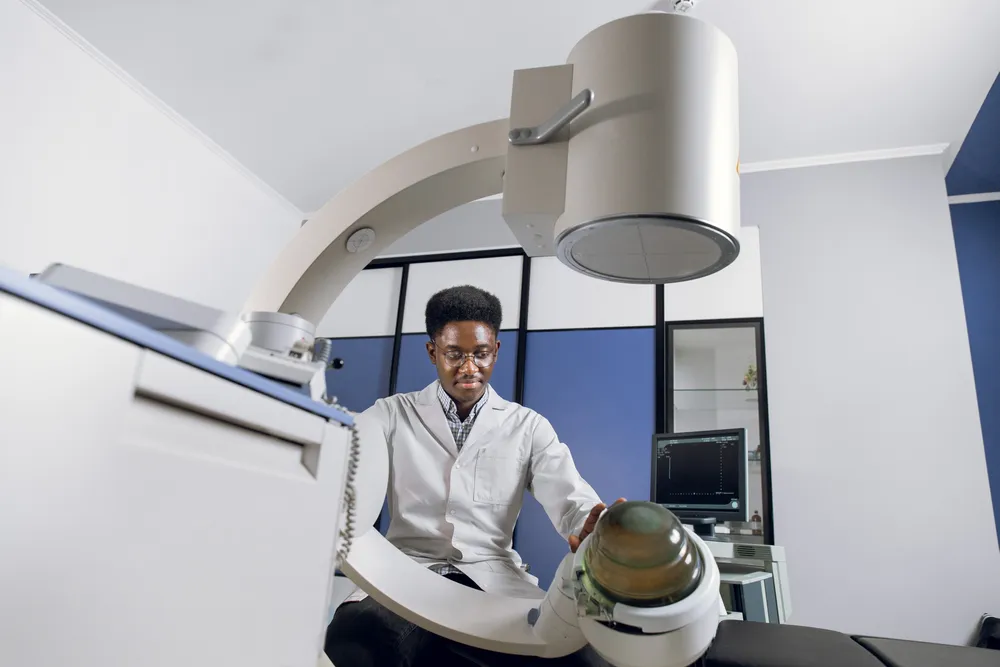Comprehensive Guide to Treating Different Types of Kidney Stones
Kidney stones can be an excruciatingly painful experience. While most people may be familiar with the term "kidney stone," not many know about the different types...

Kidney stones are small, hard deposits that can form in our kidneys and cause a lot of discomforts. They are a common problem that affects many people around the world. Gaining knowledge about what causes kidney stones will enable you to take the right actions to prevent them. And if you do experience them, you will be better equipped to seek the appropriate treatment.
Kidney stones, medically known as nephrolithiasis, are solid masses made up of various substances that are normally dissolved in urine. They can vary in size, ranging from tiny crystals to larger stones that can obstruct the urinary tract. The most common types of kidney stones include calcium oxalate, calcium phosphate, uric acid, and struvite stones.

The diet plays a significant role in the formation of kidney stones. When our diet is not balanced, it increases the chances of developing these troublesome stones.
Take care of the elements present in the foods mentioned below to prevent the formation of these stones.
Foods that are rich in oxalate, such as spinach, rhubarb, and beetroot, can contribute to stone formation.
Additionally, a high intake of sodium (salt) and animal protein can also increase the risk.
Inadequate hydration can lead to concentrated urine, which promotes the development of kidney stones. Therefore, drinking enough water becomes crucial in preventing their formation.
Research indicates that genetics can play a significant role in the formation of kidney stones. If you have a family history of kidney stones, it means that your relatives have experienced this condition before. This familial link suggests that you may have an increased predisposition to developing kidney stones as well.
While genetics alone may not guarantee that you will develop kidney stones, it is important to be aware of this familial connection and take appropriate measures to reduce your risk. Regular check-ups with a healthcare professional and following preventive strategies can help manage and minimize the chances of developing kidney stones if you have a family history of the condition.
Some specific medical conditions can increase the likelihood of developing kidney stones. These conditions include:
Hyperparathyroidism
Urinary tract infections
Gout
Inflammatory bowel disease
Certain metabolic disorders.
If you have any of these conditions, it is important to be aware that they can contribute to the formation of kidney stones. Seeking medical advice and appropriate management for these conditions can help reduce the risk of kidney stone development and its associated complications.
Leading a sedentary lifestyle and being overweight or obese can raise the chances of developing kidney stones. When we don't engage in regular physical activity, it can disrupt the normal processes of our body, including the metabolism of calcium and other substances. This disruption can contribute to the formation of kidney stones. Therefore, it is important to stay active and maintain a healthy weight to lower the risk of developing stones.
By including regular exercise in our routine and adopting a healthy lifestyle, we can help the body function properly and reduce the likelihood of kidney stone formation.

Drinking enough water is important to prevent kidney stones. Drinking an adequate amount of water helps dilute the urine and prevent minerals and substances from crystallizing and forming stones. When we don't drink enough water, our urine becomes more concentrated, making it easier for kidney stones to develop.
To maintain good hydration and reduce the risk of kidney stones, it is recommended to aim for at least eight glasses of water per day. However, individual water needs may vary based on factors such as climate, physical activity level, and overall health.
Water acts as a natural flush for our kidneys, helping to keep them healthy and functioning properly. By consuming sufficient water, we increase urine volume, which helps to flush out waste products and prevent the build-up of minerals that can lead to stone formation.
In addition to water, it is important to limit the intake of sugary beverages and excessive caffeine, as these can have a dehydrating effect. It's best to opt for water as the primary source of hydration.
By following some simple dietary guidelines, you can lower your risk of developing these stones.
One important step is to limit the consumption of foods that are high in oxalate. Examples of oxalate-rich foods include spinach, rhubarb, beets, and almonds. While it's not necessary to eliminate these foods, it's a good idea to consume them in moderation.
Another thing to consider is your intake of sodium, which is commonly found in table salt and processed foods. Try to limit the amount of processed and packaged food you eat and avoid adding extra salt to your meals.
Consuming high amounts of animal protein, such as red meat, poultry, and seafood, can increase the level of uric acid in your body. It's best to limit your consumption of these protein sources and include more plant-based proteins in your diet, such as legumes and tofu.
Increasing your dietary calcium from food sources rather than relying on supplements may also be beneficial in preventing kidney stones. Calcium binds with oxalate in the intestines, reducing its absorption into the bloodstream and lowering the risk of stone formation. Good sources of dietary calcium include dairy products, leafy greens like kale and broccoli, and fortified plant-based milk.
Sometimes, your doctor may recommend medications to help prevent the formation of kidney stones. These medications can be helpful in specific situations.
One type of medication that may be prescribed aims to lower the levels of oxalate in your urine. By reducing the amount of oxalate in your urine, the chances of forming stones may be decreased.
Another type of medication can help increase the levels of citrate in your urine. Citrate is a substance that can help prevent the formation of certain types of kidney stones. By increasing the amount of citrate in your urine, the formation of stones may be less likely.
In some cases, medication may be given to decrease the production of uric acid. Uric acid is a substance that can lead to the development of certain types of kidney stones. By reducing the production of uric acid, the risk of stone formation may be lowered.

There is a non-invasive procedure available to treat large kidney stones. It uses a method called shock wave lithotripsy (SWL). This procedure aims to break down big kidney stones into smaller pieces so that they can pass through the urinary tract more easily.
The healthcare professional operating the procedure will use a machine that generates shock waves. These shock waves are directed at the kidney stones from outside the body. When the shock waves reach the kidney stones, they create strong vibrations. These vibrations help break the stones into smaller fragments.
Ureteroscopy involves inserting a thin tube with a camera into the urethra, which is the tube through which urine flows out of the body, and up into the urinary tract.
The ureteroscope, which is the tube with the camera, allows the healthcare professional to see inside the urinary tract and locate the kidney stone. Once the stone is found, the healthcare professional may use special tools to remove it or break it up into smaller pieces. These tools can include lasers, baskets, or ultrasound devices.
In some cases, surgery may be required to treat larger or more complex kidney stones. The decision to proceed with surgery is based on factors such as the size, location, and composition of the stones.
One common surgical procedure is called percutaneous nephrolithotomy (PCNL). During PCNL, a small incision is made in the back to access the kidney. A narrow tube is inserted through the incision, allowing the surgeon to directly visualize the stone using a special instrument called a nephroscope. The stone is then broken up or removed using various techniques, such as lasers or ultrasounds.
We at LifeCare hospitals in Kenya understand the complexities of kidney stone management and offer a range of treatment options. We have skilled surgeons who perform the surgeries required for treatment. Consult with our experts at LifeCare Hospitals and take proactive steps towards a healthier future.
Partager cet article